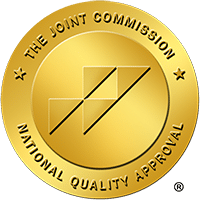Welcome to our website page dedicated to exploring the significant role that physical exercise plays in supporting addiction recovery. If you or someone you know is on the path to recovery, incorporating regular physical activity into the journey can be incredibly beneficial. Let’s delve into how exercise can be a powerful tool in the recovery process.
Physical and Mental Health Benefits
Engaging in regular exercise can have numerous positive effects on both physical and mental health. It helps to reduce stress, anxiety, and depression, which are common challenges faced during addiction recovery. Physical activity releases endorphins, often referred to as the “feel-good” hormones, which can improve mood and overall well-being.
Replacing Unhealthy Habits
Addiction often involves harmful and destructive habits that negatively impact one’s physical health. Engaging in exercise provides a healthy and productive outlet, allowing individuals to replace unhealthy habits with positive ones. It redirects their energy towards something constructive, reducing the risk of
relapse.
Structure and Routine
Consistency and routine are crucial elements in addiction recovery. Exercise can provide structure and a sense of routine in daily life. Incorporating regular physical activity into a schedule establishes a healthy pattern and helps individuals stay focused and committed to their recovery journey.
Stress Reduction
Stress is a common trigger for relapse. Engaging in physical exercise helps to reduce stress levels by promoting the release of endorphins and reducing cortisol, the stress hormone. It provides a healthy way to manage stress and cope with the challenges that arise during recovery.
Improved Self-Esteem and Body Image
Addiction can often take a toll on self-esteem and body image. Regular exercise promotes self-confidence and a positive body image by improving physical fitness and overall well-being. As individuals see the positive changes in their body and capabilities, their self-esteem and self-worth naturally improve.
Healthy Distraction and Focus
Exercise serves as a healthy distraction from cravings and intrusive thoughts related to addiction. It provides a focused activity that requires attention and concentration, diverting the mind away from negative influences. Engaging in physical activity allows individuals to shift their focus towards their well-being and personal growth.
Social Support and Connection
Participating in group exercise activities or joining fitness classes can create opportunities for social support and connection. Building relationships with like-minded individuals who share a commitment to health and wellness can be an invaluable asset in the recovery journey. The support and encouragement received from peers can reinforce motivation and resilience.
Remember, before starting any exercise program, it is important to consult with a healthcare professional, especially if you have any underlying health conditions. Finding activities that you enjoy and that align with your physical abilities is key to creating a sustainable exercise routine.
Incorporating physical exercise into addiction recovery is a holistic approach that addresses both the mind and body. By embracing the power of exercise, individuals can enhance their overall well-being, reduce the risk of relapse, and cultivate a healthier, more fulfilling life in recovery.




